The 155-mile long Demilitarized Zone (DMZ) between North and South Korea is one of the most dangerous places on Earth. But on May 24, a group of women intends to walk across it, from North to South.
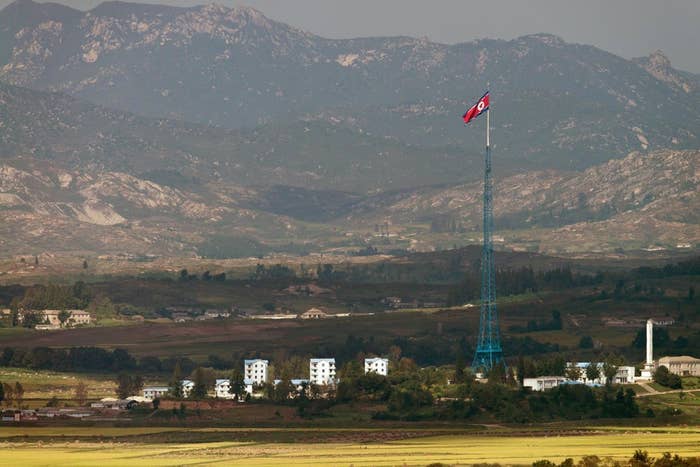
Surprisingly enough, despite its record of human rights atrocities, North Korea has reportedly signed off on the march.

The march across the two-mile wide DMZ is meant to be a symbolic gesture of peace, 70 years after the peninsula was split at the end of World War II. Among the march's leaders is women's rights activist Gloria Steinem, honorary co-chair of the effort.
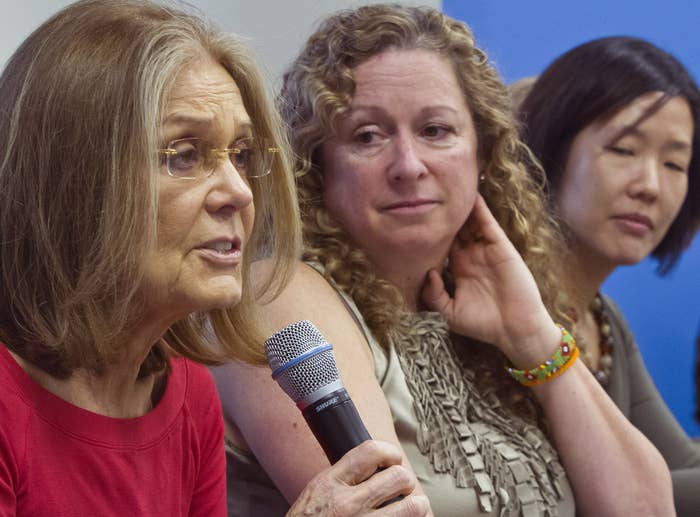
Also taking part in the May event: CodePink co-founder Medea Benjamin, 1976 Nobel Peace Prize Laureate Mairead Maguire, and 2011 Nobel Peace Prize Laureate Leymah Gbowee.
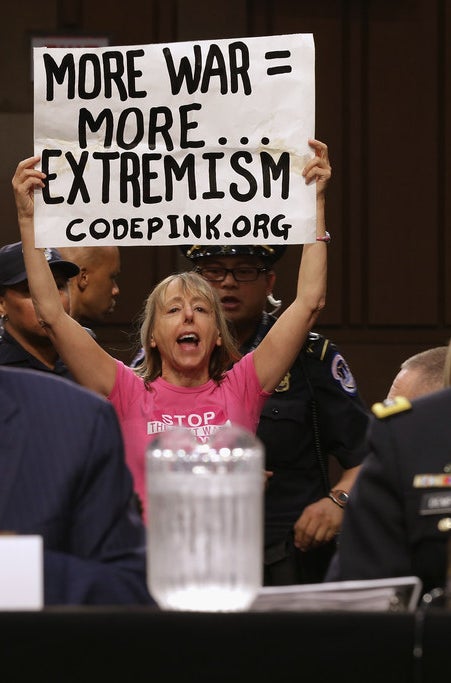

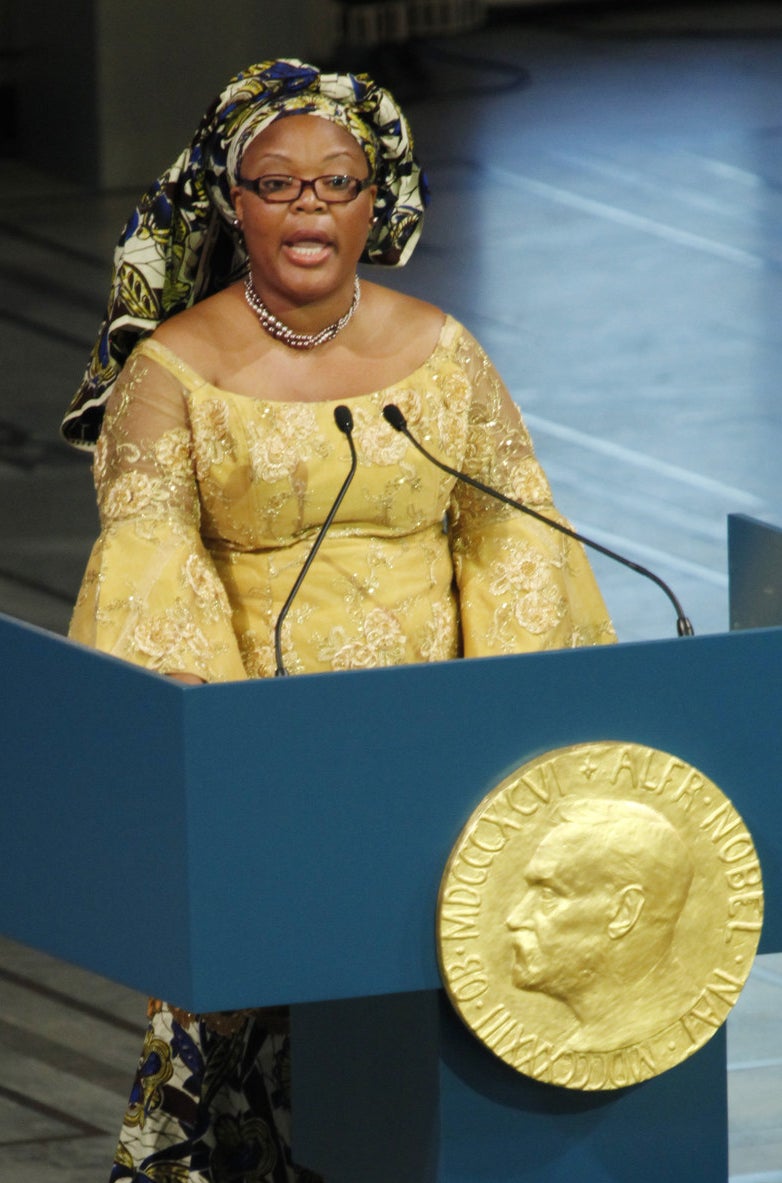
The plan was first announced last month on the sidelines of the United Nations Conference on the Status of Women. Its leader, however, has drawn some scrutiny towards the march.
"We are walking to invite all concerned to imagine a new chapter in Korean history, marked by dialogue, understanding, and — ultimately — forgiveness," Christine Ahn, a Korean-American peace activist and the lead organizer of the event, said at a press conference. The trek is timed to coincide with International Women's Day for Peace and Disarmament.
Ahn has long advocated for a reunified peninsula and final end to the Korean War — the DMZ was erected after the armistice that temporarily stopped the fighting and there has been no formal peace treaty in the 52 years since. That stance has led her at times to criticize the United States' sanctions regime against Pyongyang, America's military presence on the peninsula, free-trade between South Korea and the U.S., and speak out against militarily removing the Kim family from power.
"While it's important to see how the un-ended Korean War impacts the human rights of Koreans on both sides of the DMZ, we must also see the way in which the cause of human rights is being dangerously used to justify 'regime change' -- code for military intervention," Ahn wrote at the Huffington Post last week.
Ahn denied charges of being "pro-North Korea" on CNN on Monday saying, "Basically that is a Cold War mentality, and that kind of framework is what has enabled Korea to remain divided. I am pro- peace. I am pro-engagement. I am pro-dialogue. I am pro-human rights."
The United Nations last year published a scathing report of North Korea's human rights abuses, including "forced starvation, enslavement and rape." The U.N. mission's lead investigator described North Korea's atrocities as the "like of which I don't think I've seen or read of since the Khmer Rouge [in Cambodia] and the Nazi atrocities during the second world war." North Korea has repeatedly denied the claims made in the report.
Though North Korea has given its sign-off to the march, South Korea has so far been reluctant. As of Monday, the decision was reportedly still under review.
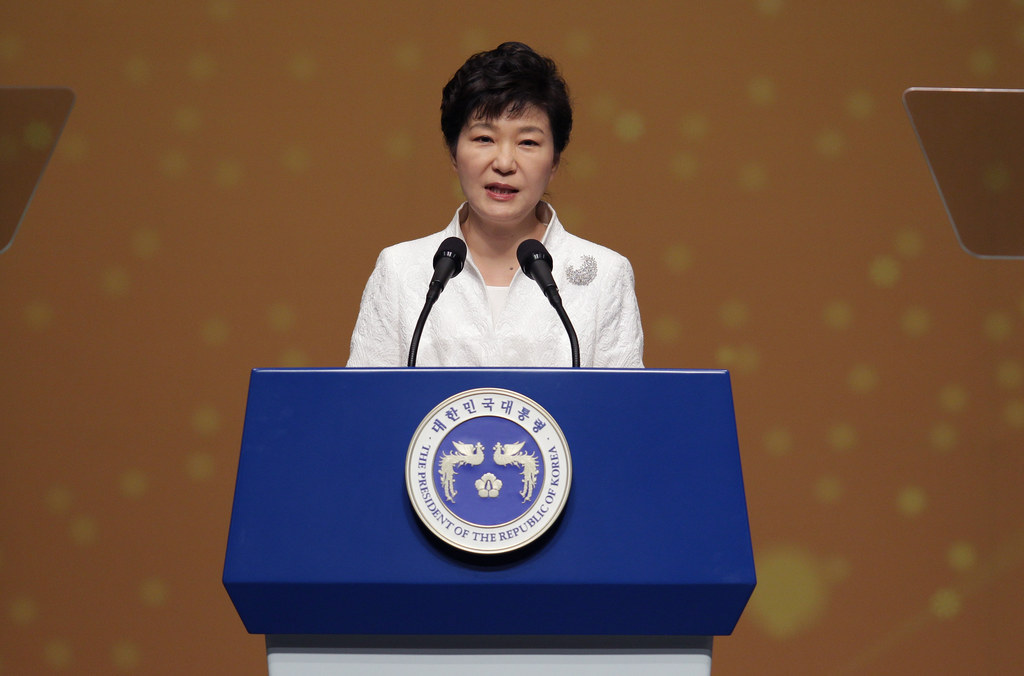
But even if South Korea doesn't approve, the march is still going to move forward, Ahn insists.
"Given that President Park is the first female president and that she has already granted two other delegations permission to cross the DMZ—New Zealanders on motorbikes and Korean-Russians retracing their migration—we believe we have a good chance of being granted authority in the name of peace," Ahn wrote in a newsletter released last month.
"We have decided, however, that in case we are denied by President Park, we would still do the peace walk and just go back from Pyongyang through China and fly to Seoul."
Along with the walk itself, according to the event's website, Ahn and the other activists will also host "international peace symposiums in Pyongyang and Seoul where we can listen to Korean women and share our experiences and ideas of mobilizing women to bring an end to violent conflict."
